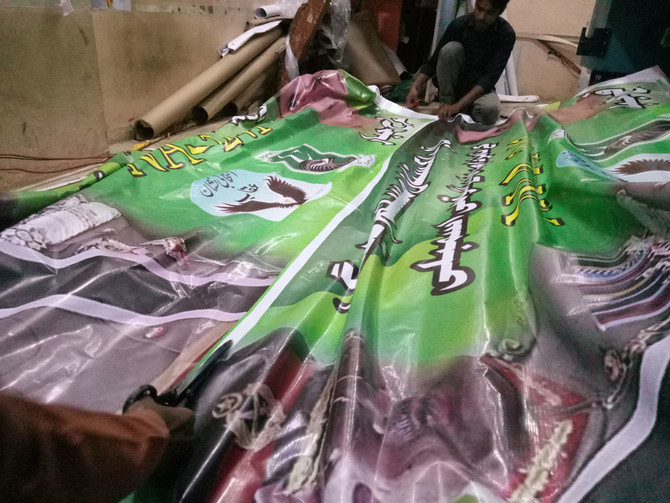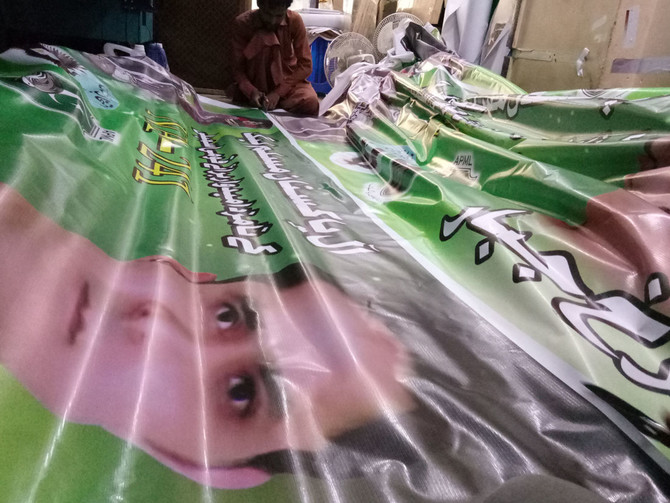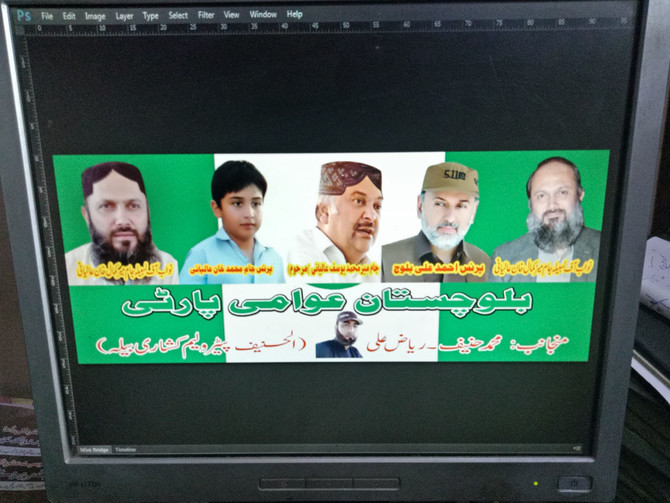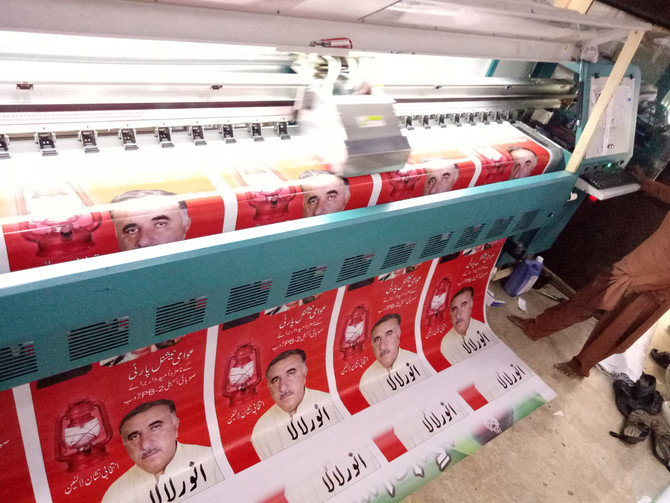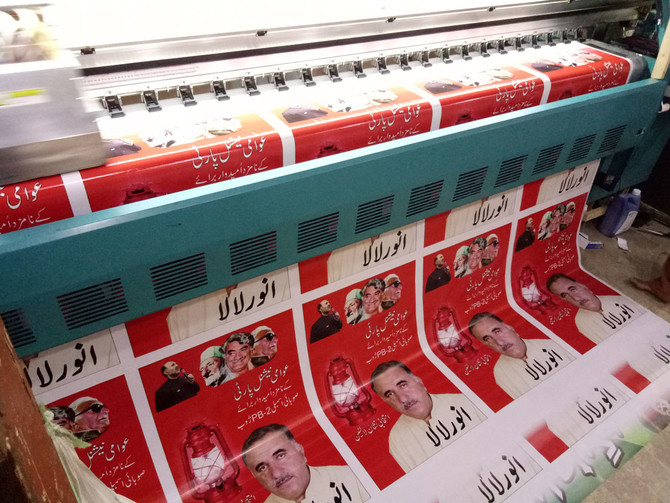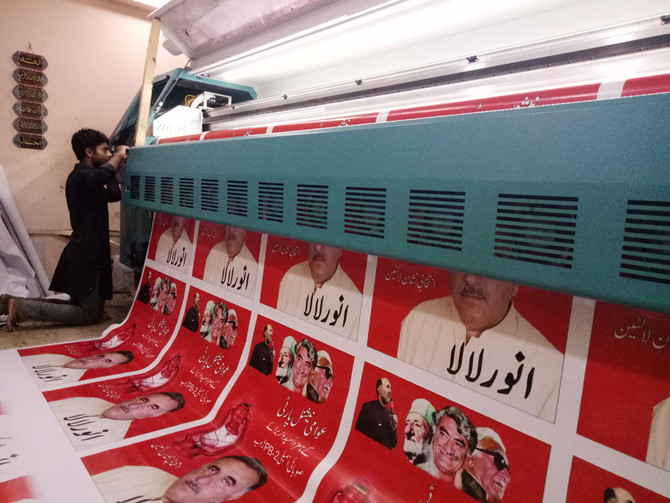KARACHI: Printers at Pakistan Chowk Market in the seaside metropolis of Karachi are working until the small hours to keep up with demand for election campaign posters and fliers.
Pakistan is to hold general elections for national and four provincial assemblies on July 25, according to the Election Commission of Pakistan (ECP).
Final lists of the candidates will be issued in the next couple of days. However, according to ECP, nearly 7,000 candidates, including 2,100 from Karachi, have been cleared to contest 61 national and 130 provincial assembly seats from Sindh.
Those who know that they will be standing for election have already approached printing markets for printing of different display material, including banners, hoardings, hanging banners, symbols, handbills, badges, stickers and posters. Party flags and voter cards are also mandatory printing material, which have made the printers in several printing markets of the city busy.
“We close our press for four hours by 4am in the morning,” Adnan Qaiser, a printer at Pakistan Chowk told Arab News, adding as the election inches nearer, the work orders from clients will increase and there will be no break at all.
“Within the next couple of days, we will be working 24 hours a day and seven days a week,” Qaiser says. After the ECP issues final list of contenders everyone will start publicity, he adds.
Rehan Ahmed, a printing agent who collects orders from clients, said that a candidate for national assembly spends between Rs0.5million to Rs2million on campaign literature.
He added that influential candidates have a budget of up to Rs 2 million for printing, including thousands of banners, posters, steamers, pole banners and nearly 200,000 voters’ cards, which is distributed among electorates at their doorstep in advance.
Inquiry office, Landhi, Al-karam square Liaquatabad and Korangi industrial areas are other busiest places of printing in Karachi.
Pakistan Chowk, which the country’s largest market of digital and offset printing, receives printing orders from across Sindh and Balochistan provinces.
“Although there printing presses in Quetta, most of the orders are placed in Karachi,” Ahmed told Arab News, who had printed material for former Chief Minister Balochistan, Sardar Sanaullah Zehri, besides other politicians during the last general elections.
Ahmed said that in Karachi the printing orders from MQM are down from the last election.
Qaiser said that in local government elections the independent candidates print most of the material, however, in general polls the political parties spend more on publicity.
Salman Ali, in-charge of printing for the Muttahida Majlis Amal (MMA), said the religious alliance has printed up to one lack square feet of material and printing is still under way.
He added that strict rules which prohibit candidates from displaying posters at public places and government properties have forced candidates to consider other options.
In the last general election the number of posters and banners was higher, but now the political parties and candidates are using funds to decorate election offices and vehicles.
The hike in dollar rates has increased the rates of Panaflex and other material imported from abroad, said Maqsood Ahmed, another printer in Pakistan Chowk market, who added that “neither the dollar rates nor the ECP code of conduct has shrunk the workload.”



